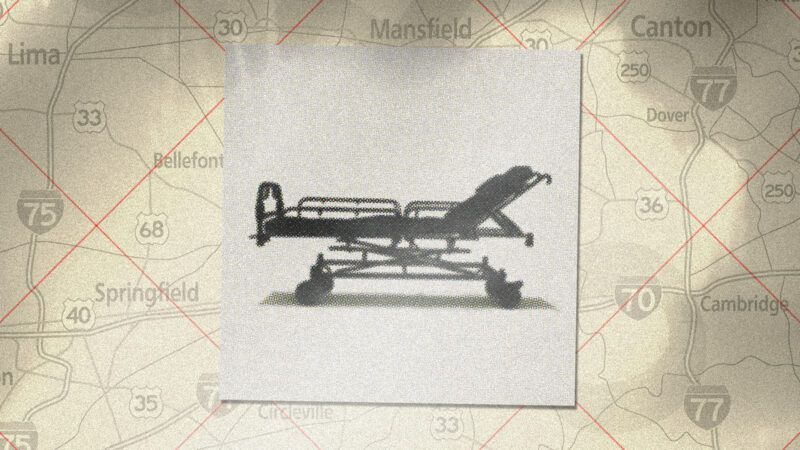Alabama Killed an Inmate With an Experimental Execution Method. Ohio Could Be Next.
Following the nitrogen hypoxia execution of Kenneth Eugene Smith last week, Ohio lawmakers introduced a bill to bring the execution method to their state.

After Alabama's grisly nitrogen hypoxia execution of inmate Kenneth Eugene Smith last week, it looks like another state may adopt the method in a bid to resume executing inmates after lethal injection drugs have become nearly impossible to obtain.
The bill, not yet named, was introduced in Ohio's House of Representatives on Tuesday, and state Attorney General Dave Yost has already given his support. It would allow inmates to choose between lethal injection and nitrogen hypoxia but would require nitrogen when lethal injection drugs aren't available.
The latter is the exact situation Ohio has found itself in during recent years. The state hasn't killed a death row inmate since 2018, and Republican Gov. Mike DeWine went so far in 2020 as to say that lethal injection was "impossible from a practical point of view today" due to difficulty finding drugs.
But death by nitrogen hypoxia still brings major concerns for inmate suffering. The method, which involves placing a tight-fitting mask over the inmate's face and slowly replacing oxygen with nitrogen, causing death by suffocation, is experimental. Smith, who was pronounced dead after about 15 minutes of being forced to breathe only nitrogen last Thursday, is believed to be the first person in the world executed in this way. While Alabama prison officials claimed that the execution went as planned, witnesses reported that Smith "struggled against his restraints" and "shook and writhed on a gurney."
The details of Smith's death haven't held back Ohio Republicans, who seem to view the execution method as a useful way to end the state's six-year execution moratorium.
"There must be accountability for offenders convicted of the most heinous crimes and prisoners who continue to flout the law behind bars," Yost said in a Tuesday press release. "The pursuit of justice is a journey, and closure remains elusive for victims' families until a sentence is fully executed. Ensuring that the consequences align with the severity of an offense is essential to providing solace to grieving relatives."
Rep. Brian Stewart (R–Ashville), who introduced the bill, echoed Yost's comments, arguing, "As long as capital punishment remains the law in Ohio, the law should be followed." Stewart added that "providing an additional method for carrying out capital punishments is necessary to ensure Ohio can continue to impose these sentences in response to the most heinous crimes committed in our state."
For opponents of the death penalty, many of whom have viewed the increasing difficulty of sourcing lethal injection drugs as a sign that the practice may be waning in the United States, the introduction of nitrogen hypoxia executions is troubling news. If states follow Alabama's lead and begin executing their death row inmates by suffocation rather than hard-to-source drugs, it's possible that executions could rise in the coming years.


Show Comments (137)